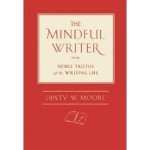Quotation of the Week: Rebecca Makkai
 “One of the first difficult lessons that I had to learn as a writer was to push my characters into doing really inappropriate things, whether it’s a criminal act in this really extreme case, or just saying something that a normal person would keep their mouth shut about, or forcing a confrontation. In everyday life we act really politely and we don’t always say what is on our mind and we don’t always get ourselves into messes. But you have no story unless you’re willing to push somebody to the brink. You find the moment where the character says something they wouldn’t normally say or does something they wouldn’t normally do. They go over that line and you have a story.”
“One of the first difficult lessons that I had to learn as a writer was to push my characters into doing really inappropriate things, whether it’s a criminal act in this really extreme case, or just saying something that a normal person would keep their mouth shut about, or forcing a confrontation. In everyday life we act really politely and we don’t always say what is on our mind and we don’t always get ourselves into messes. But you have no story unless you’re willing to push somebody to the brink. You find the moment where the character says something they wouldn’t normally say or does something they wouldn’t normally do. They go over that line and you have a story.”
–Rebecca Makkai
Source: This terrific, extensive interview in Trop. (FYI: We have a Q&A w/Rebecca right here on this site, too.)


